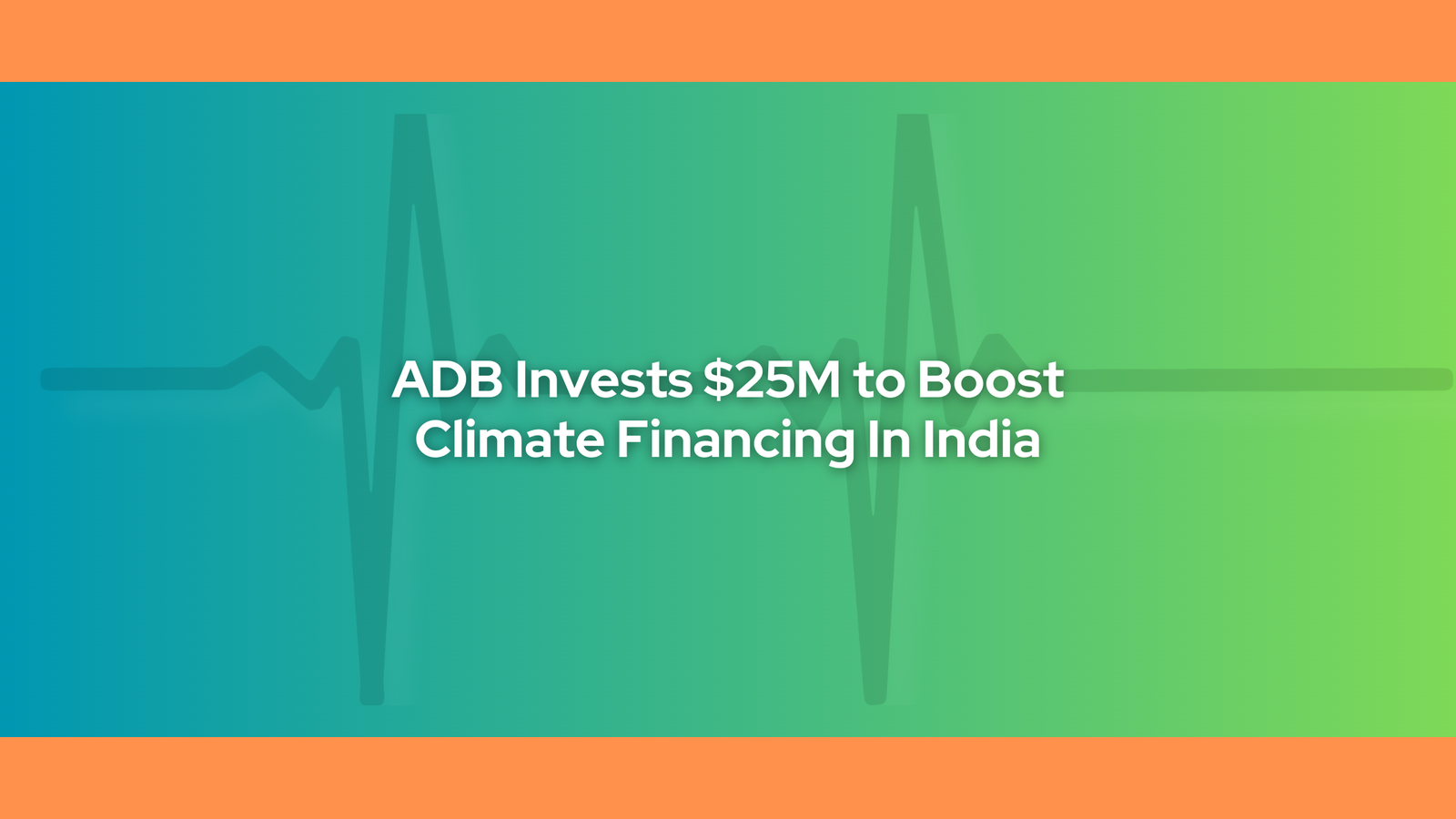
Climate financing refers to funding sources and tools to mitigate climate change. While India’s economy is one of the fastest-growing in the world, it still needs help funding initiatives and projects that lessen the impacts of global warming. Hence, climate financing in India plays a pivotal role in supporting the nation’s goals to curb carbon emissions and promote renewable energy.
In October, the Asian Development Bank (ADB) took a significant step toward advancing climate resilience in India by committing $25 million to a certified climate bond. This bond, issued by Vivriti Capital Limited, is the first of its kind from a medium-sized nonbank financial company in the country.
These proceeds will go toward financing businesses in industries like waste management, solar and wind energy, and electric vehicles. By channeling funds into these sectors, ADB is helping India meet its commitments under the Paris Agreement. The country has set its goals of cutting emissions by one billion tons by 2030 and attaining net-zero emissions by 2070.
The bond’s goal, which is undergoing certification by the Climate Bonds Initiative, is to improve financially disadvantaged businesses’ access to climate finance, particularly for micro, small, and medium-sized enterprises (MSMEs), mid-market corporations, and retail clients in India.

At least 30% of the total funds will go to financing the electric vehicle initiative, such as charging stations and battery swapping stations. Green loans funded projects that enhance the environment or the climate, whether new or ongoing.
Suzanne Gaboury, ADB director general for Private Sector Operations, emphasized the role climate bonds can play in assisting the growth of the capital market and closing the significant gap in the climate finance industry in India. “This partnership with Vivriti Capital Limited allows ADB to support scalable and commercially viable renewable energy projects and promote decarbonization of road transport, which accounts for up to 30% of urban air pollution in India,” she added.
ADB’s investment in climate financing comes at a crucial time, as India continues to scale up its efforts to address climate change and fulfill its international climate commitments. India is highly vulnerable to the impacts of climate change.
The Germanwatch Global Climate Risk Index 2021 ranked India among the top ten countries most affected by climate risks. Approximately 110% of the average rainfall since 1994 was received during the monsoon season in 2019, causing billions of dollars in damages and impacting millions of people.

Over 80% of the population resides in districts susceptible to natural disasters. They face severe challenges in livelihood, food security, and way of life brought about by catastrophes such as severe cyclones, retreating glaciers, unpredictable rainfall patterns, falling groundwater levels, and rising sea levels.
The effects of global warming also affect urban populations. Long-lasting episodes of intense heat, flooding, and illness would put densely populated metropolitan areas—especially those with unplanned development—at increased risk. Furthermore, India’s debt capital market still needs growth, with just 3.8% of domestic corporate bonds designated as green bonds.
“With this partnership, we are well-positioned to channel these funds into critical areas such as electric vehicles and renewable energy projects. These investments will not only drive sustainable economic growth but also create a lasting multiplier effect across the broader economy,” said Vineet Sukumar, VCL founder and managing director.